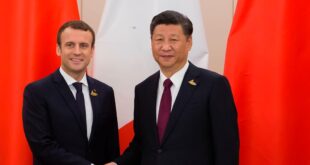
Muhamad Yehia
Zimbabwe has mobilized $28 million to bolster its healthcare system through innovative financing measures, including a Health Levy and a sugar tax, according to the World Health Organization (WHO).
The announcement was made during a three-day national dialogue on health financing that brought together government officials, healthcare providers, civil society organizations, and international experts to discuss sustainable strategies for improving the country’s health sector.
Finance, Economic Development, and Investment Promotion Deputy Minister Kudakwashe Mnangagwa revealed that $10 million was raised through the Health Levy, while $18 million came from a sugar tax. The funds aim to strengthen the health system and enhance access to healthcare for all citizens.
“We will have periodical meetings between Treasury and the Ministry of Health and Child Care (MoHCC) to discuss major challenges facing the health sector, including budget utilization, disbursements, and cash support, as well as to establish a minimum monthly health sector requirement to guide our cash flows,” Mnangagwa stated.
Zimbabwe has yet to meet the Abuja Declaration target of allocating 15% of its annual budget to health. Rising healthcare costs, limited resources, and inequitable access continue to challenge the system. To address this, stakeholders emphasized the potential of imposing taxes on unhealthy products such as tobacco and alcohol, a strategy successfully employed in countries like Vietnam and South Africa.
The dialogue identified several key priorities, including increasing public revenue allocation to healthcare, enhancing funding predictability, and strengthening accountability mechanisms. Additional recommendations included:
Collaborating with the private sector and leveraging indigenous knowledge systems.
Investing in preventive health measures, expanding immunization programmes, and focusing on primary healthcare.
Promoting cost-effective quality improvement initiatives and eliminating resource wastage.
Involving communities in decision-making and fostering innovation in service delivery.
WHO Representative to Zimbabwe, Dr. Desta Tiruneh, commended the government’s commitment to health financing and emphasized the importance of collaboration between the Ministry of Health and Child Care, the Ministry of Finance, and Parliament to implement reforms.
He pledged WHO’s continued support in executing the dialogue’s recommendations and advancing Zimbabwe’s progress toward Universal Health Coverage (UHC).
 موقع وجه أفريقيا موقع وجه أفريقيا هو موقع مهتم بمتابعة التطورات في القارة الأفريقية
موقع وجه أفريقيا موقع وجه أفريقيا هو موقع مهتم بمتابعة التطورات في القارة الأفريقية


